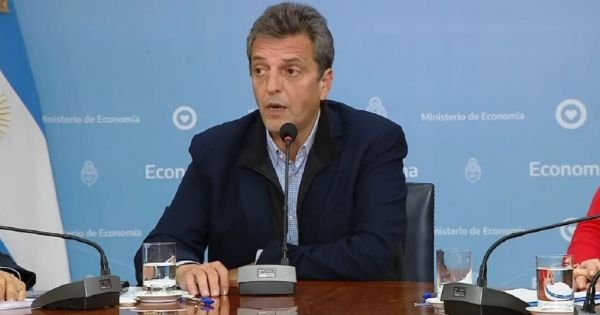[ad_1]
Argentina: “Blue” dollar pierces AR$ 500 barrier
Meanwhile, Massa held a working meeting with senior executives of firms associated with the Japan Business Federation (Keidanren)
The “blue” (a euphemism for “black market”) dollar Wednesday pierced the AR$ $500 barrier and set a new record high, it was reported in Buenos Aires. Meanwhile, the official exchange rate also went up despite the Central Bank (BCRA) selling some of its reserves.
The informal quotation climbed to AR$503 for a total increase of ARS 11 in three days. Thus, the gap between the blue dollar and the official exchange rate is 90.5%.
So far in 2023, the blue dollar accumulates an increase of AR$153, after closing 2022 at AR$346.
Thus, the dollar with the 30% surcharge included in the PAIS tax averaged AR$359.96, and with the 35% advance payment on account of the Income Tax on the purchase of foreign currency, at AR$456.87.
The so-called Qatar dollar for travel abroad -which has a 45% tax rate- stood at AR$ 484.56, and at AR$553.78 for purchases above US$ 300, with an additional 25%.
In this scenario, Economy Minister Sergio Massa welcomed dignitaries of the Japanese Chamber of Commerce to speed up productive investments in strategic sectors such as industry, agri-food, services, energy, and critical minerals.
Massa held a working meeting with senior executives of firms associated with the Japan Business Federation (Keidanren). The delegation was headed by the Chairman of the Committee for Latin America, Yutaka Kase, who represents the multi-sector giant Sojitz.
Massa highlighted the importance of Keidanren, one of the most important business chambers in the Asian country, which involves more than 1,500 companies from various sectors, with investments all over the world and representing the most influential Japanese companies at a global level.
Japanese companies have been investing in Argentina for more than two decades and their impact on the country’s economy has been significant. In recent years, these investments have accelerated, with productive projects involving billions of dollars, generating employment, promoting exports, encouraging productive linkages, and transferring state-of-the-art technology to the local innovation system.
The third largest economy in the world in terms of GDP, Japan is a key trade partner representing a sophisticated consumer market in which products and services from Argentina’s regional economies can find endless opportunities. It also relies heavily on foreign trade to supply food and raw materials, while it is one of the main global investors, with an outward FDI stock of around US$ 1.9 billion.
[ad_2]
Source link




